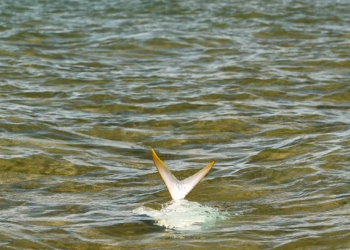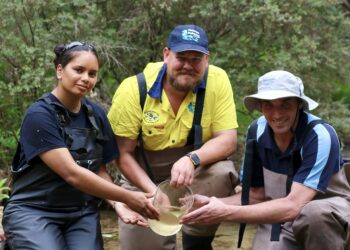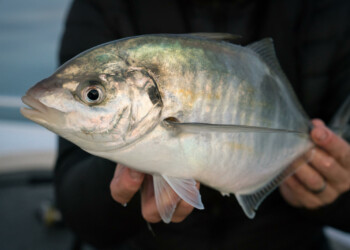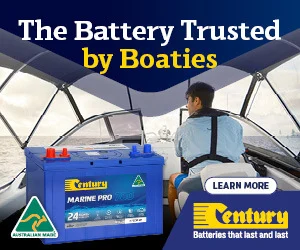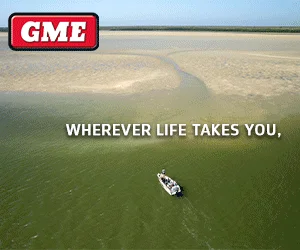RECFISH, the peak national body that’s been representing us since 1983, is at a crossroads. The federal Government has recently announced that it won’t provide any more funding, thus meaning RecFish will have to stand or fall based on its own ability to get the cash it needs.
While the lack of government funds will leave RecFish scrabbling for money in the short-term, it is probably a positive move for the organisation’s longer term future. Being reliant on government handouts meant RecFish probably wasn’t as aggressive as it should have been in criticising government policy – or lack of policy – regarding fish and fishing.
Up until now RecFish has been something of a toothless tiger when it comes to this sort of thing. It could be argued that in the past the organisation’s executive pursued a fairly low key approach to dealing with government. After all, why would they bite the hand that fed them?
So if RecFish manages to find alternative funding sources, it should emerge as a stronger, more vocal and probably more effective critic of government inaction regarding recreational fishing. Because it will – hopefully – have independent funding arrangements, it won’t be compromised by any financial links to government and thus it should have no reason to hold back when it comes to standing up for fish and fishermen.
The problem, however, is coming up with ways to get funds in an increasingly cash-strapped economy. Various ideas regarding imposing levies on tackle and boats have been mooted and then rejected on legal and administrative grounds. Individual donations and “supporters clubs” are currently being promoted as a grassroots way of soliciting much-needed funds. In reality, however, expecting donations from anglers is a pipedream. We’re a bunch of apathetic tight-arses and RecFish is wasting its time expecting the angling community to support it, financially or otherwise. Truth be known, most fishos don’t even know what RecFish is so why would they donate money to it?
That said, it is vitally important that we have a national organisation representing angling in all its various forms. Sadly, various personality clashes, policy differences, infighting and squabbling have meant that RecFish Australia in its current form only has the support of a few of the many groups representing recreational fishing in this country. Groups currently involved with RecFish include ANSA, RecfishWest, AFANT, the Australian Underwater Federation, VRFish, and TARfish.
Other groups including Sunfish QLD, AAA, SARFAC SA, FutureFish Vic, ATF, FCA, AAG NSW, AFTA, AMIF/BIA, National, Ecofishers NSW, Anglers Alliance Tasmania, GFAA and the National NFA are not RecFish members.
It’s not hard to see that RecFish would be a mighty powerful and influential organization if all these groups rallied under its collective flag.
It’s a source of constant frustration to many pundits and commentators involved in rec fishing – including Fishing World – that infighting and various little spats have prevented us from properly uniting. If we had been able to speak as a single powerful and unified voice it’s likely we would have had much more influence than we currently do in regards to issues such as marine parks and no-fishing zones.
It makes perfect sense for all the various groups and organizations representing the different facets of fishing to band together to fight the various forces opposing us (which include politically motivated marine parks, extremist greens, hard-core animal rights supporters and other anti-fishing ratbags). No one group from the rec fishing side could hope to succeed against these forces.
But there’s also a lot of work that needs to be done in promoting fishing as well. This is where a national organization like RecFish could do some really positive stuff. We badly need to promote fishing in a more proactive light. We need it pushed as an ideal family activity and we need to get more kids involved. Apart from that, there is a need to launch campaigns on improving fish habitat and bio-mass, developing and promoting sustainable fishing methods, researching fish stocks and biology, highlighting destructive and unsustainable commercial fishing and so on and so forth.
RecFish Australia is the logical organisation under which all the various groups representing recreational fishing should gather. Only by banding together can collective statements and policies can be presented and effective campaigns and lobbying programs be launched and co-ordinated.
The tackle industry, represented by AFTA, has been doing some behind-the-scenes work with RecFish CEO Len Olyott, a relative newcomer to the post who’s generally regarded as a good bloke with lots of proactive ideas. AFTA has had its problems with past RecFish administrations – this is one of the reasons AFTA canceled its membership of RecFish a few years back – but Olyott is someone AFTA insiders say they can do business with.
AFTA, along with other industry groups such as those representing the boating sector, is keen to see RecFish restructure itself. According to AFTA documents obtained by Fisho, this restructure would initially involve a focus on lobbying, better communication, open membership, an independent chairman and less red tape and bureaucracy.
“We want to help RecFish,” the AFTA document says, “and to that end we are recommending that it implement a restructure based upon the Association Incorporations Act. RecFish needs to lose its internal politics and revise its objectives and operation.
“The first thing needed is an independently-facilitated meeting to drive change. Then the industry needs to take hold of concepts and drive the changes through, support them and monitor them effectively.
“If government money is not available for this, the operation will have to be tightened and more work will be needed to fulfill the objectives.
“AFTA would like to see a real world budget that includes support from the industry – with collective industry consideration – rather than relying on government for support. It will be a lean budget to initially get things moving. It will mean major change, hard work and a challenge – something that we in other associations understand only too well.”
It’s good to see the tackle industry has taken the lead in formulating ideas for a positive and proactive future for RecFish Australia. It’s likely the various boating industry organizations will be far keener to work with RecFish if AFTA’s plans come to fruition. The boating sector has been reticent about getting involved due to issues concerning some aspects of RecFish’s leadership. If this changes, it can only be a bonus – the boating sector has significant organizational muscle and money behind it. With fishing boats making up about 70 per cent of the total boating market in this country, it’s well and truly time boating and fishing worked together more effectively.
When it comes down to the nitty-gritty, recreational fishing in this country needs effective national direction and unity. RecFish Australia has the potential to be that and more. But first it needs to rid itself of its stale old leadership and obsession with bureaucratic niceties. It needs to wean itself off government hand-outs and instead embrace a no-holds-barred role based on promoting and developing fishing opportunities in this country. Only then will RecFish Australia be able to do the sort of work we need it to do. Fisho understands representatives from AFTA and RecFish are currently meeting to discuss these issues. We’ll report on the outcomes as soon as possible.
By Jim Harnwell
Fishing World magazine’s current May edition features a response from RecFish Australia CEO, Len Olyott, to Jim Harnwell’s March editorial . Due to space restrictions the published letter was edited so is reprinted below in its entirety.
PO Box 187
Grange Qld 4051
Phone/fax 07 3356 1111
Email ceo@recfish.com.au
ABN 87 547 561 663
www.recfish.com.au
Dear Jim,
Recfish Australia response to March 2009 Editorial
I read with interest your recent editorial calling for action and highlighting the role that Recfish Australia can play in guiding the future of recreational fishing in Australia.
One of the tactics of the anti-fishing movement is to masquerade as conservation. A case in point is the push from the Australian Conservation Foundation supported by Pew Environmental Group to declare the entire Coral Sea Region a no fishing zone. There are already marine reserves there and the Australian Government has a process in place to implement its Marine Bioregional Planning in consultation with stakeholders but that is not good enough for these zealots. They will of course be buoyed by news from
the USA of a string of new marine monuments that prohibit all forms of fishing in US Pacific Territories.
Pew’s intention is for this string of marine sanctuaries to extend right across the Pacific and they are working from both sides of the ocean to achieve this. It doesn’t matter to these people that any recreational fishing in the region is mostly catch and release and that responsible charter operators and
game fishers have invested millions of dollars in equipment and vessels to access these areas. For them, it’s entirely the principle of creating a lock out zone for preservation. Other movements are not quite as cryptic and we can consider the intentions of People for the Ethical Treatment of Animals as hostile in the extreme – check out www.fishinghurts.com and find out why the ocean is full of sea kittens now. If you doubt the intentions and ability of this movement, consider Germany where catch and release is banned and fishing tournaments are forbidden. This has nothing to do with sustainability but perception about the “torture” of innocent creatures.
What does Recfish Australia do to address these cannonballs? For 25 years we have tried to represent the views, rights and responsibilities of ALL recreational fishers. You note that there seems to be a plethora of organisations and viewpoints. This is one of the overwhelming attributes of our community.
We may have different viewpoints but WE are UNITED in one aspect and that is a love of fishing, fish and the environment.
Recfish Australia believes that it’s possible to accommodate a range of views and present these views. We rely on membership via existing state/territory and national organisations although it is possible for other organisations and individuals to join as affiliate members. We also cater for individual supporters who wish to contribute towards our work. By trying to be the reasonable voice, it may appear to many that we are a “toothless tiger” or too moderate but rest assured that when the time comes to take a
hard line, Recfish Australia is not afraid to do so for the good of ALL recreational fishers.
A case that comes to mind was the 2007 NSW Administrative Appeals Tribunal hearing concerning grey nurse Sharks. The details of the case are available on the Recfish Australia website and in court records but the short version is that a prominent conservation organisation sought to increase protection for
grey nurse Sharks through increasing the size of sanctuary areas in New South Wales and creating new sanctuary areas. Recfish Australia, with the overwhelming support of fishing clubs and individuals, challenged the Nature Conservation Council to provide data to support their appeal. It was a costly,
drawn out court case but in the end, sanity prevailed and the appeal was overturned. Unfortunately, there was very little follow up media to highlight the victory and the recreational sector was very quickly locked into the next battle.
The nature of recreational fisheries management in Australia means that management is vested with the states. Essentially this means that where an issue applies to only one state, Recfish Australia will not take a position or make comment unless invited to by the state representative organisation. We feel that this ensures the autonomy of our member organisations and at the same time, allows a national organisation to present its point of view if and when required. This of course, does mean that state organisations need to be strong enough so that they can meet the challenges of serving recreational fishers in their jurisdictions and Recfish Australia encourages fishers to support state/territory based organisations as well as national organisations.
At a time when solidarity is needed, it’s disappointing that certain organisations believe that differences are insurmountable and choose to steer their own courses. It’s astonishing that Queensland, a state with
the second highest number of recreational fishers in the country, chooses not to join Recfish Australia.
Likewise South Australia is faced with increasing challenges to their fisheries including Marine Protected Areas, banning of trout fishing and drought that is being used as an excuse for a 12 month ban on catching Murray cod. Joining a national organisation would give them access to other organisations with similar problems and would enable sharing ideas, experiences and resources.
With regards to Commonwealth fisheries, we have the mandate to challenge decisions made by the Australian Government that impact on recreational fishers. Commonwealth marine parks are one such area and we are actively involved in dialogue, together with state/territory member organisations, with the Department of the Environment, Water, Heritage and the Arts about the roll out of their Marine Bioregional Planning. We also recently made a submission on the review of the Environment Protection and Biodiversity Conservation Act 1999. The Act is one of the most powerful pieces of legislation impacting on recreational fishing at state and national levels. Already regulations under the act affect what you can and can’t do in a Commonwealth Marine Park and this means that things like live bait,
more than one rod, filleting of fish and other impositions are effective throughout the entire area of a Commonwealth Marine Park. These restrictions have nothing to do with sustainability and cannot be
defended on the grounds of bio diversity conservation.
While talking to an Australian Government department may appear as the soft option, rest assured that without dialogue, there is no hope for an amicable outcome. Marine protected areas will not go away no matter how opposed recreational fishers are. With discussion in a controlled environment, the impacts on recreational fishers can be minimised.
Recfish Australia was also responsible for significant changes in the way that Commonwealth fisheries are managed. Some readers may remember the Save Our Slimies campaign and the blockading of Parliament House in Canberra.
The battle for appropriate management of the Small Pelagic Fishery has been a drawn out affair led mainly by Recfish Australia founder member, Graham Pike and the full details can be found in a paper which Graham presented at the World Recreational Fishing Conference in Florida last November. The
paper is available from our website www.recfish.com.au and makes for fascinating reading about what can be done with effective, responsible lobbying.
It is also worth noting that Recfish Australia is the gazetted representative body to which the Fisheries Research and Development Corporation reports. This position, Recfish shares with the National Aquaculture Council and the Commonwealth Fisheries Association. As a representative body, Recfish
Australia is in the unique position to determine the research priorities and identify areas for development and extension in recreational fishing. Working closely with FRDC, we have formed a group called Recfishing Research which consists of scientific experts, fisheries managers and representatives of
recreational fishing organisations and the industry. This group sets the priorities (through a national workshop of stakeholders) for research, development and investment and reviews project proposals and
offers advice to FRDC.
One of the areas we work closely with FRDC on is in the development of human capacity for our community. This includes investing heavily in training programs for the next generation of recreational fishing leaders to give them the skills needed to meet the challenges facing our sector. Many community
leaders in recreational fishing are beyond retiring age and having given tirelessly over many decades, they deserve a break. However, they are genuinely concerned about the next generation and their capacity to advocate and promote recreational fishing and hence, they are reluctant to hand over the reigns until they are sure that their good work will continue. I am please to say that Recfish Australia has hosted a national Next Generation of Leaders training course and Western Australia and New South Wales have both completed Young Leader training programs. These efforts are bearing fruit and two young leaders from the Western Australia program were recently elected to the national Recreational Fishing Advisory Committee and a third was elected to the Recfishwest board.
We have also developed a range of policy document ranging from Marine Protected Areas to Threatened Fish Species and these documents are a resource to guide recreational fishers and representative groups.
We encourage feedback on these policies and welcome any comments, both good and bad.
In addition to representing recreational fishers on a range of committees and providing submissions on issues that affect recreational fishers, we have also received over a million dollars of grant money to conduct projects including the revision of the National Code of Practice for Recreational and Sportfishing
(recently released); development of the world’s first standard for the environmental, economic and social assessment of fishing tournaments (NEATFish); investigations into fishing related injuries and deaths and countless other projects which can be found on our website www.recfish.com.au .
We can’t however, mount effective campaigns without funding and in June 2008, funding through an annual grant of $100,000 from the Australian Government ceased. Ironically, this amount has not increased since 1991 despite the increasing workload and range of issues that recreational fishing faces.
I have had one face-to-face meeting with the Minister for Agriculture, Fisheries and Forestry and several others with senior DAFF staff and the minister’s advisor. On all occasions, it has been reiterated that it’s highly unlikely that funds will be available to Recfish Australia. This places us in a perilous position where we rely on membership fees and pro-rata grants from some state fisheries agencies which saw benefit in the work that Recfish Australia conducts at a national level. With limited funds, our work is similarly limited.
You mention the levy raising project that generated so much angst in the fishing community. For a variety of reasons, this became a political target in the run up to the election and the fall out still affects Recfish Australia today. The project actually aimed to indentify all possible sources of funding available to the recreational fishing sector and after an exhaustive search of international and local options, the recommendations from the consultants were provided to Recfish Australia.
We recently met with stakeholders to discuss the options of which there are not many that will work in Australia and in this current financial climate. Mandatory levies or a “tackle tax” are not currently an option under Australian law, similarly the GST raised on the sale of fishing related products cannot be directed to the recreational fishing sector. A voluntary levy, administered via the industry, could contribute to a fighting fund for recreational fishing or contribute towards conservation projects but this
would require considered discussion with the industry.
Like any small business in today’s climate, fishing manufacturers, wholesalers and retailers need to make tough financial decisions which depend on a range of factors. It’s not up to Recfish Australia to comment on how industry should or could raise funds but we would certainly like to work closely with them and there are a number of projects in the pipeline. Likewise a closer alliance with AMIF and BIA could see some significant benefits flowing to both the recreational fishing and boating sectors. A rebate on tax on boating fuel has also been raised as a possible source of income and with some groups receiving such rebates; the door is certainly not closed on that discussion.
One of the key aspects to emerge from the consultant’s report was the need for Recfish Australia to develop a business case with an appropriate funding model. We believe that if we can demonstrate a commitment to securing our own, independent line of funding, government at both a national and
state/territory level may be prepared to make a similar investment into the organisation. We are currently working on this.
In terms of having a full time presence in Canberra, while this seems desirable, the truth is that most federal politicians are only in Canberra when parliament is sitting and getting a meeting during this time is difficult. We will certainly be looking into way of working with our commercial and aquaculture counterparts to come up effective lobbying strategies. Likewise, with most recreational fishing decisions deferred to the states, this is where the battles really are won and lost and what is needed at the state/territory level is a strong, representative organisation that is in touch with the needs of the community it represents. Recreational fishers should also not underestimate the value of lobbying their local members of both federal and state government.
What will definitely work against us is the backstabbing and bad mouthing of one organisation by another. This amounts to political and community-perception suicide for recreational fishing. As long as we are so caught up with fighting each other, there is no way that we can mount an offensive against our detractors. Recfish Australia has weathered 25 years of storms and I don’t think the solution is to form another national organisation. If organisations have issues with the way that Recfish Australia conducts
business, raise the issues and challenge us. Join with us and make sure that your point of view is heard, not all our members agree all of the time but it is important that we consider these divergent views and make sure that they are heard in a calm, level-headed way and then present a realistic appraisal of the situation.
I welcome anyone with ideas on how to strengthen our position and put forward a unified front to contact me directly. Your opinion does matter and does count. Recfish Australia is YOUR national voice, make sure YOU are heard.
Len Olyott,
Chief Executive Officer
Recfish Australia














